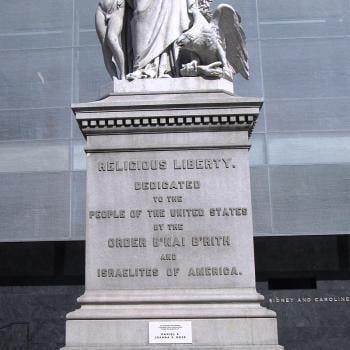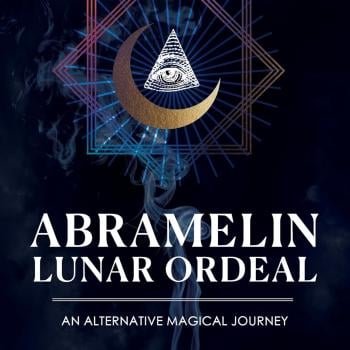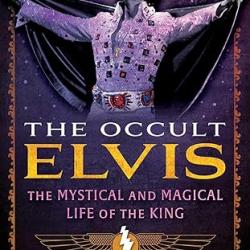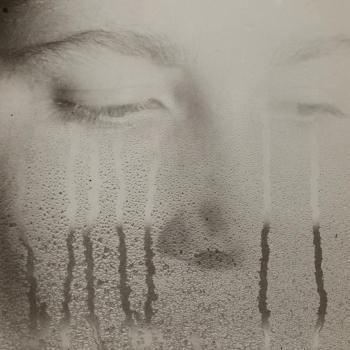On Saturday, July 16th 2022, the WitchsFest USA event held in Astor Place, New York City (NYC), was invaded by a group of evangelical Christians who clearly believed that their religion was the only one which should be followed.
The organizer of Witch’s Fest, Ms Starr Ann RavenHawk, had obtained a permit for the event by renting the space from the city. NYC DCAS (Department of Citywide Administrative Services) provides detailed instructions online on how to rent an event space.


The evangelical Christians had no right to invade the event, yet did so in significant numbers, with many wearing matching t-shirts and one carrying a loud megaphone. Their aim was to disrupt the event as it was contrary to their religious beliefs. Apparently, they have disrupted the event in previous years as well.

During the disruption, Starr attempted to reason with the Christians. She stood with a small group who held space with her. Her explanations that most Witches/Pagans do not believe in a Satan/Devil figure or in a Hell, fell on deaf ears. The evangelical Christians simply could not be reasoned with.

One attendee was dressed in a Spanish Inquisition outfit and took great delight in infiltrating the ranks of the evangelical Christians. The irony of the situation was totally lost on the Christians.

The police were eventually called. The two who were dispatched spoke to the man with the megaphone, but eventually left, leaving the Christians to continue disrupting the event.


I found it interesting that the Christians almost left when a group of Santeria practitioners stood next to them, drumming, singing and dancing. Unless a legal solution can be found for future events, a strategy of positioning drummers next to the Christians might just be the best way to deal with them. Personally, if I’m going to be subjected to noise, I’d rather listen to drumming than someone screaming a plea through a megaphone of adopting his personal Christian belief system, which I’d heard delivered far more eloquently dozens, if not hundreds, of times in the past.
Obviously, these evangelical Christians don’t believe that Witches and Pagans should be accorded the religious freedom which they themselves enjoy. Where can we turn to for guidance on this issue?
Universal Declaration of Human Rights
According to the United Nations General Assembly at the Palais de Chaillot in Paris, France on 10 December 1948, there are 30 basic human rights recognized by the Universal Declaration of Human Rights. Of particular interest are numbers 2 and 18:
“2. No discrimination Everyone is entitled to all the rights and freedoms, without distinction of any kind, such as race, colour, sex, language, religion, political or other opinion, national or social origin, property, birth or other status. Furthermore, no distinction shall be made on the basis of the political, jurisdictional or international status of the country or territory to which a person belongs. …
- Freedom of thought and religion Everyone has the right to freedom of thought, conscience and religion; this right includes freedom to change his religion or belief, and freedom, either alone or in community with others and in public or private, to manifest his religion or belief in teaching, practice, worship and observance.”
Note the use of the world “everyone” – clearly it is not just evangelical Christians who should enjoy the right to practice their own religion.
First Amendment to the United States Constitution
“The First Amendment to the U.S. Constitution protects the freedom of speech, religion and the press. It also protects the right to peaceful protest and to petition the government. The amendment was adopted in 1791 along with nine other amendments that make up the Bill of Rights—a written document protecting civil liberties under U.S. law. The meaning of the First Amendment has been the subject of continuing interpretation and dispute over the years”:
“Congress shall make no law respecting an establishment of religion, or prohibiting the free exercise thereof; or abridging the freedom of speech, or of the press; or the right of the people peaceably to assemble, and to petition the Government for a redress of grievances.”
According to the Britannica, Thomas Jefferson, (1743—1826), was the:
“draftsman of the Declaration of Independence of the United States and the nation’s first secretary of state (1789–94) and second vice president (1797–1801) and, as the third president (1801–09), the statesman responsible for the Louisiana Purchase. An early advocate of total separation of church and state, he also was the founder and architect of the University of Virginia and the most eloquent American proponent of individual freedom as the core meaning of the American Revolution.”
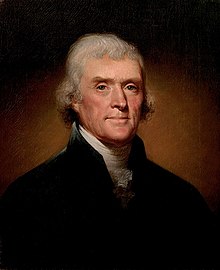
It is important to muse upon what Mr Jefferson had to say about the First Amendment:
“Believing with you that religion is a matter which lies solely between Man & his God, that he owes account to none other for his faith or his worship, that the legitimate powers of government reach actions only, and not opinions, I contemplate with sovereign reverence that act of the whole American people which declared that their legislature should ‘make no law respecting an establishment of religion, or prohibiting the free exercise thereof’, thus building a wall of separation between Church & State. Adhering to this expression of the supreme will of the nation in behalf of the rights of conscience, I shall see with sincere satisfaction the progress of those sentiments which tend to restore to man all his natural rights, convinced he has no natural right in opposition to his social duties.”
It certainly appears that the original spirit of the First Amendment was that everyone should be free to engage in the religious practices that best suit them.
A Haven for those Escaping Religious Persecution
Many of the first immigrants to America were fleeing religious persecution.
Beginning in 1630, the Puritans fled persecution by King Charles I and the Church of England. It is widely believed that they were the first pilgrims, arriving on the Mayflower and settling in Massachusetts.
Some fifty years before the Mayflower left port, a band of Huguenots, French Protestants who followed the teachings of John Calvin, the French-born Protestant theologian, arrived and settled in Fort Caroline. They were fleeing persecution by the Catholic Church – King Louis XIV eventually outlawed their faith in 1685. Sadly, most of these first settlers were massacred by Spanish infantrymen for their crime of not being Catholic. The Spaniards actually thought the Huguenots were Lutherans. Later Huguenots fared better, settling in Massachusetts, New York, Pennsylvania, Virginia, and South Carolina.
I find it sad that some of the descendants of those who came to America fleeing religious persecution are now persecuting others for their religious practices.
Diversity Should Be Embraced
The United States is one of the most racially / ethnically / religiously diverse nations on the planet. When this diversity is finally embraced our nation will maximize its reservoir of unique qualities, skills and strengths. This will surely foster a period of renewed growth as all will feel included and enjoy equality.
It is time for the evangelical Christians to realize that not everybody is interested in their path and that they should keep it to themselves unless queried. This of course includes not disrupting witch / pagan events where they are not welcome.
All photos in this blog were taken by me at the event. There are more available for perusal on my Facebook page.
Tony Mierzwicki
Author of Hellenismos: Practicing Greek Polytheism Today and Graeco-Egyptian Magick: Everyday Empowerment.







